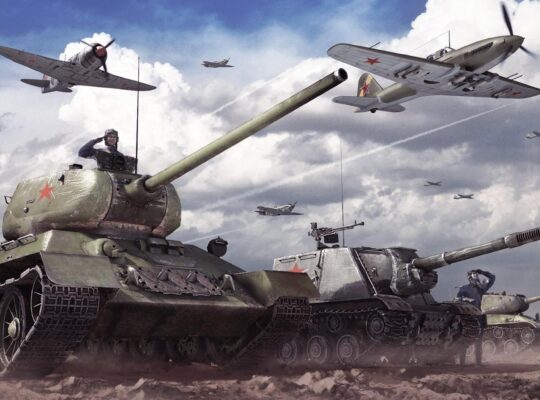Introduction
If you’ve ever wondered, “What beats rock?” the answer is simple: Paper. This short answer comes from the classic hand game Rock, Paper, Scissors, one of the simplest yet most popular games in the world. Although the game looks like a fun pastime, it has a long history, cultural variations, and even psychological strategies behind it.
In this article, we’ll dive into the meaning of what beats rock, explain the rules of Rock, Paper, Scissors, explore its history, talk about strategies and modern variations, and even show how it appears in today’s digital and gaming world.
The Basics of Rock, Paper, Scissors
Rock, Paper, Scissors is a two-player hand game. Both players count down (often “1, 2, 3, shoot!”) and reveal one of three hand signs simultaneously:
- Rock (a closed fist)
- Paper (an open hand)
- Scissors (two fingers extended like a V)
The rules are straightforward:
- Rock beats Scissors (a rock can smash scissors).
- Scissors beats Paper (scissors can cut paper).
- Paper beats Rock (paper can wrap around and cover rock).
So, whenever someone asks, “What beats rock?” the correct answer is always Paper.
Why Does Paper Beat Rock?
At first, it might sound odd. How can a thin piece of paper defeat a heavy rock? The answer lies in symbolism. The creators of the game wanted a balanced system where each option has a strength and a weakness. Paper “covers” or “wraps” the rock, representing how even something fragile can overcome something strong.
This idea is part of what makes the game clever—no one choice is unbeatable.
The History of Rock, Paper, Scissors
Rock, Paper, Scissors is older than most people realize. It originated in China over 2,000 years ago, where it was known as “Shoushiling.” Later, it spread to Japan, where it became “Jan-Ken.”
In the 20th century, the game traveled to Europe and North America, becoming a universal pastime. Today, it’s played worldwide as a quick way to make decisions or settle debates—similar to flipping a coin, but a lot more interactive.
Strategies Behind Rock, Paper, Scissors
Many think the game is pure chance, but human psychology makes it more strategic than it seems. Here are some key strategies:
- Pattern Recognition – Players often fall into habits. Watching your opponent’s moves can give you clues.
- Unpredictability – Switching up your moves prevents your opponent from guessing your choice.
- Statistical Tendencies – Studies show that many beginners choose Rock first. Knowing this, choosing Paper at the start can increase your chances of winning.
So, if someone asks, what beats rock, the practical answer is Paper—but the strategic answer is to stay unpredictable.
Modern Variations
The basic version has only three options, but modern variations have expanded the game. The most famous is Rock, Paper, Scissors, Lizard, Spock, made popular by the TV show The Big Bang Theory.
Here’s how it works:
- Rock crushes Scissors and crushes Lizard.
- Paper covers Rock and disproves Spock.
- Scissors cuts Paper and decapitates Lizard.
- Lizard eats Paper and poisons Spock.
- Spock smashes Scissors and vaporizes Rock.
This version makes the game more exciting and reduces the chance of ties.
Rock, Paper, Scissors in Pop Culture and Gaming
The simplicity of the what beats rock concept has influenced not just playgrounds but also modern gaming. Many video games use Rock, Paper, Scissors mechanics for balance. For example:
- Pokémon uses a type-effectiveness system (Water beats Fire, Fire beats Grass, Grass beats Water), inspired by the same logic.
- Fighting games like Mortal Kombat or Street Fighter often have move counters based on the same principles.
- Mobile apps and browser games even feature direct Rock, Paper, Scissors competitions, sometimes under names like What Beats Rock.
So while “what beats rock” isn’t a video game title itself, it has inspired countless digital mini-games.
Fun Facts About Rock, Paper, Scissors
- There is a World Rock Paper Scissors Championship, with players from all over the globe.
- Some companies use the game to decide trivial matters like who takes the first turn.
- A famous story tells how two Japanese billionaires used Rock, Paper, Scissors to settle a multi-million-dollar business deal.
FAQs About “What Beats Rock?”
Q: What beats Rock?
A: Paper. Always.
Q: Can Rock ever win?
A: Yes, Rock beats Scissors.
Q: Is “What Beats Rock” a real video game?
A: Not officially. It’s a phrase from Rock, Paper, Scissors, but some small browser games exist with that title.
Q: What’s the best move to start with?
A: Many experts suggest starting with Paper since beginners often choose Rock first.
Q: How do you never lose Rock, Paper, Scissors?
A: You can’t guarantee victory, but staying unpredictable and reading your opponent’s habits gives you an edge.
Conclusion
The next time someone asks you “What beats rock?”, you’ll know the answer: Paper. But now, you also know the history, strategies, and cultural significance of the game behind that answer.
Rock, Paper, Scissors may be simple, but it’s stood the test of time because it balances luck, psychology, and fun. From ancient China to modern video games, the logic of what beats rock continues to entertain people of all ages.




